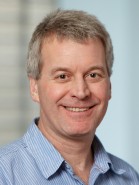Biogeoscience
The focus of the Biogeoscience group is to investigate the workings of the global organic carbon cycle, and to understand how climate and anthropogenic activity influences, and is influenced by, this cycle.
A particular emphasis is on the processes that give rise to the accumulation of organic matter in ocean sediments, and on deciphering the record of past Earth and ecosystem changes embedded in these sedimentary archives.
Life on Earth builds diverse biomolecules, many of which have complex, exquisitely ornate chemical structures. Eglinton and his colleagues exploit these “legacy molecules” to trace organic matter produced by both terrestrial and aquatic organisms from biological source to sedimentary sink. Recent analytical advances in molecular characterisation techniques that probe the distribution and stable isotopic composition of these legacy compounds afford information not only on the biological source but also the environmental conditions experienced by the precursor organisms.
The Biogeoscience group led by Timothy Eglinton examines processes leading to the mobilisation, transport, and burial of organic matter over a wide range of spatial and temporal scales. Specific areas of current emphasis are carbon cycling in large river systems, at the land-ocean interface, and the dispersal and burial of organic matter on continental margins. Particular effort is focused on carbon cycling in the Arctic where both terrestrial and marine systems are poised to experience dramatic changes in the face of a warming climate.
Research programmes within the Biogeoscience group involve in-depth investigations of specific environmental systems, coupled with extensive surveys spanning large environmental gradients, and sustained observations of critically important processes. They also involve close collaboration with other groups in the Department of Earth and Planetary Sciences, as well as with the other ETH departments and with insti-tutions that add complementary expertise and perspectives.
Contact
Geologisches Institut
Sonneggstrasse 5
8092
Zürich
Switzerland

